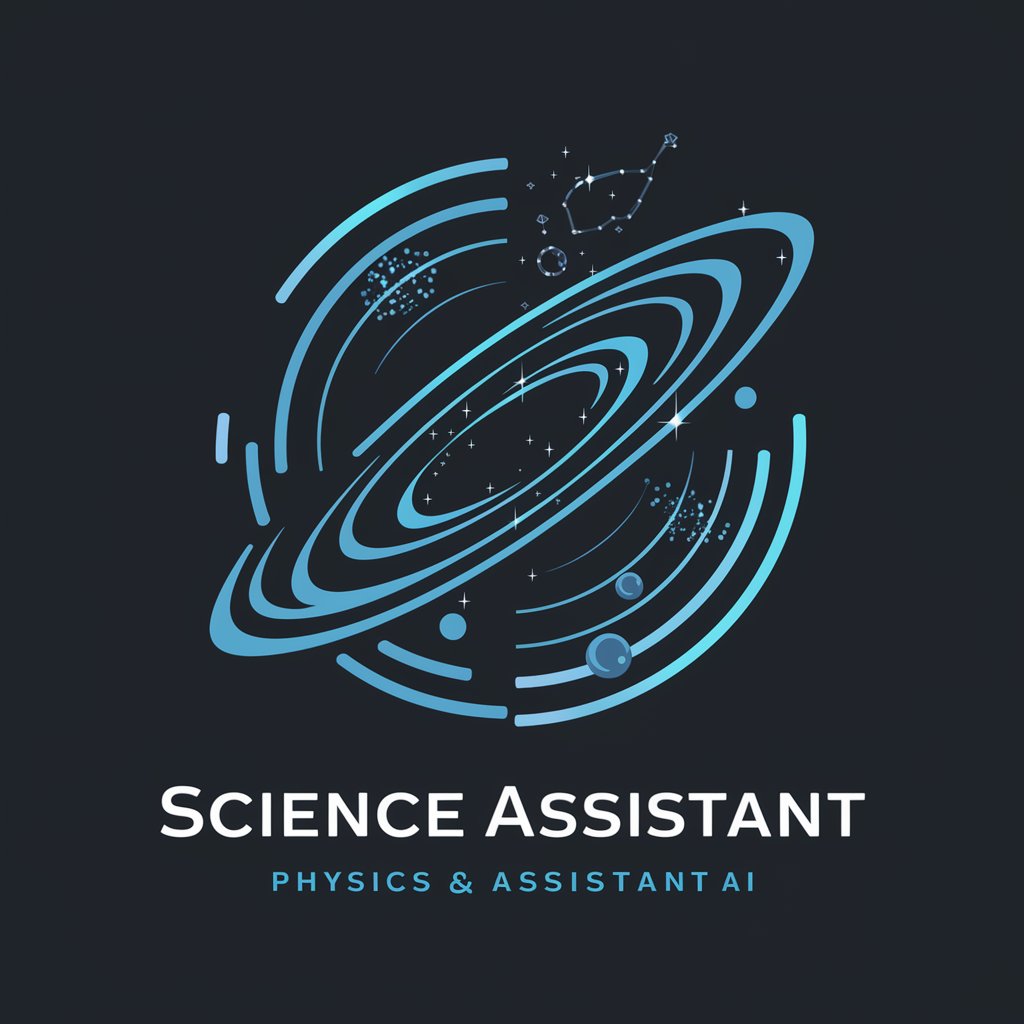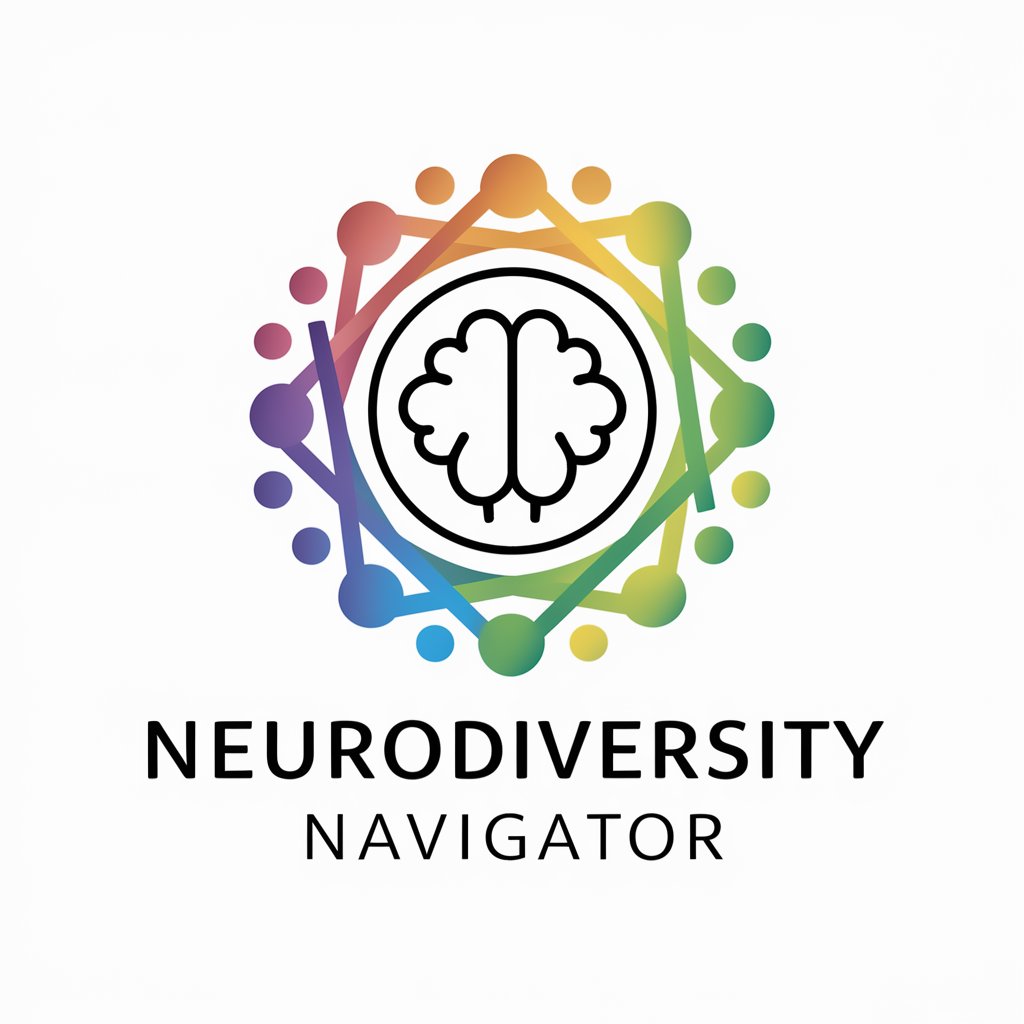Science Assistant - Physics Expertise Access

Welcome! How can I assist you with physics today?
Unlocking Physics Mysteries with AI
Explain the significance of dark matter in the universe.
What are the primary challenges in detecting cosmic rays?
How do particle accelerators contribute to our understanding of fundamental physics?
Describe the role of high energy astrophysics in modern astronomy.
Get Embed Code
Overview of Science Assistant
Science Assistant is a specialized AI tool designed to offer expert-level assistance in physics, particularly focusing on astronomy, high energy astrophysics, cosmic rays astrophysics, and particle physics. Its primary design purpose is to provide detailed, accurate scientific information sourced from reputable databases like indexed journals and arXiv.org. The tool is equipped to cater to various levels of understanding, offering explanations that range from basic concepts to complex theories. It ensures the use of high-quality, reliable information, steering clear of speculative theories and focusing solely on established principles in physics. For example, a user inquiring about the Higgs boson would receive a detailed explanation of its significance in particle physics, including relevant equations and experimental evidence, sourced from peer-reviewed journals. Powered by ChatGPT-4o。

Key Functions of Science Assistant
Detailed Explanations of Physics Concepts
Example
Explaining the principles of black holes, including their formation, properties, and the physics governing their behavior.
Scenario
A university student seeking to understand the Schwarzschild radius and event horizon in the context of general relativity.
Providing Up-to-date Research Findings
Example
Presenting the latest findings on dark matter research, including recent experimental results and theoretical advancements.
Scenario
A researcher looking for the latest advancements in dark matter detection techniques and theoretical models.
Answering Specific Physics Queries
Example
Addressing questions on the behavior of cosmic rays in the Earth's atmosphere and their interaction with magnetic fields.
Scenario
An amateur astronomer curious about the effects of cosmic rays on space weather and satellite operations.
Educational Support
Example
Assisting in understanding complex equations and theories, like the Standard Model of particle physics, by breaking down the concepts into simpler terms.
Scenario
A high school teacher preparing a lesson on fundamental particles and forces for a physics class.
Target User Groups for Science Assistant
Students and Educators
Students ranging from high school to university level, as well as educators, can benefit from the detailed explanations and educational support, especially in understanding complex theories and staying updated with current research trends.
Researchers and Academics
Academic researchers and scholars can utilize the tool for accessing the latest scientific papers, discussing theoretical perspectives, and exploring experimental results, ensuring they are up-to-date with advancements in their field.
Science Enthusiasts
Amateur astronomers, science hobbyists, and anyone with a keen interest in physics can find the tool useful for satisfying their curiosity and gaining a deeper understanding of various physics topics.

Guide to Using Science Assistant
Initial Access
Visit yeschat.ai to start using Science Assistant without the need for login or subscription to ChatGPT Plus.
Define Your Query
Clearly articulate your question or topic related to physics, ensuring it falls within the areas of astronomy, high energy astrophysics, cosmic rays, or particle physics.
Specify Detail Level
Indicate your preferred level of detail and complexity, whether you're a beginner or an expert in the field, to receive a tailored response.
Review and Refine
After receiving an initial response, feel free to ask follow-up questions or request clarifications to deepen your understanding.
Apply the Knowledge
Use the information provided for educational purposes, research, academic writing, or to satisfy personal curiosity about the physics topics discussed.
Try other advanced and practical GPTs
弦楽器フォームアナライザー
Empowering musicians with AI-driven insights

No-Code News
Empowering Ideas with AI-Driven No-Code News

Master Debater
Hone Your Argument Skills with AI

Sneaky SEO Bot
Revolutionize Search Rankings with AI

グローバルトラベラー @GPT支店
Your AI-Powered Journey Designer

Plane Spotter Pro
Elevating Your Plane Spotting Experience with AI

News Explorer
Your AI-Powered News Concierge

Richmond Luncher
Your AI-Powered Gourmet Guide

Shortlister: Rent 1 bedroom in inner Melbourne
Humor-infused apartment hunting, AI-powered.

Hihan-chan
Challenge Your Thoughts, Discover New Perspectives

学習者弱点ブレイカー(Learner Vulnerabilities Breaker)
Empowering your educational journey with AI.

Neurodiversity Navigator
Empowering Neurodiversity with AI

Frequently Asked Questions About Science Assistant
Can Science Assistant help me understand complex astronomical concepts?
Absolutely. Science Assistant can break down complex astronomical concepts into simpler terms, provide relevant equations, and cite sources from reputable journals for further reading.
Is Science Assistant suitable for high school physics students?
Yes, Science Assistant can adapt its explanations to suit high school students, making complex topics in astrophysics and particle physics accessible and understandable.
How does Science Assistant ensure the accuracy of its information?
Science Assistant prioritizes information from reputable sources, especially indexed journals and preprints from arxiv.org, ensuring the use of high-quality, reliable scientific information.
Can I use Science Assistant for my research paper?
Definitely. Science Assistant can provide detailed explanations, relevant equations, and citations that are ideal for academic writing and research.
Does Science Assistant cover the latest developments in physics?
Science Assistant stays updated with recent advancements in physics, focusing on established principles while providing information on recent findings where applicable.
